Join the VIP Teacher Club!
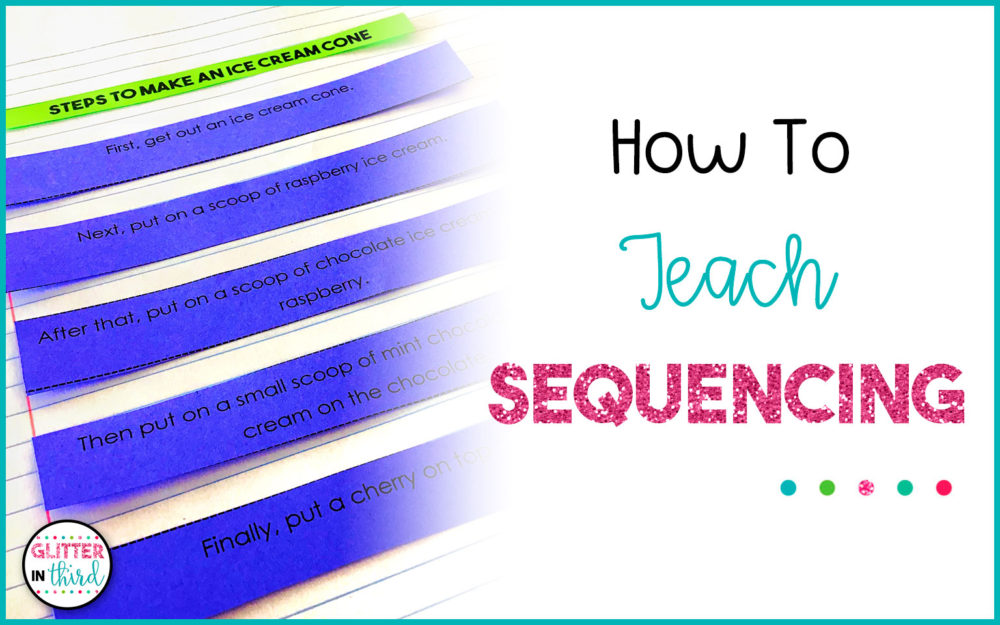
Looking for sequencing of events activities?
Sequencing is one of those skills that you don’t realize how often you use on a daily basis – even as adults!
Driving to work in the morning requires a series of following certain directions after leaving your house, step-by-step instructions while cooking, or even learning the sequencing of events involved with preparing and filing taxes.
We use sequencing skills nearly every day, which is why your students need the practice every day! 🙂
Sequencing starts as young as a child can remember.
Experts suggest creating bedtime routines for babies to help set them up for healthy sleep habits.
Kids understand when they wake up in the morning to brush their teeth, hair, and finally, get dressed in the mornings to start their day.
These types of routines and sequencing of events not only help develop problem-solving skills and good organization habits early in life, but also help connect cause and effect understanding and develop excellent comprehension skills.
Sequencing is important because it really aids in overall comprehension.
Your students might be able to recall key events that happened in a story, but can they tell you why those things happened in the sequence that they did?
I know you came here for sequencing teaching tips and resources, but since cause and effect ties so deeply into sequencing, I’d love for you to go check out my other recent post – Cause and Effect Activities for Developing Critical Thinking Skills in Children.
I have several resources for you to use for teaching sequencing of events, as well as simple activities for you to implement in your classroom to support your students’ listening and comprehension skills.
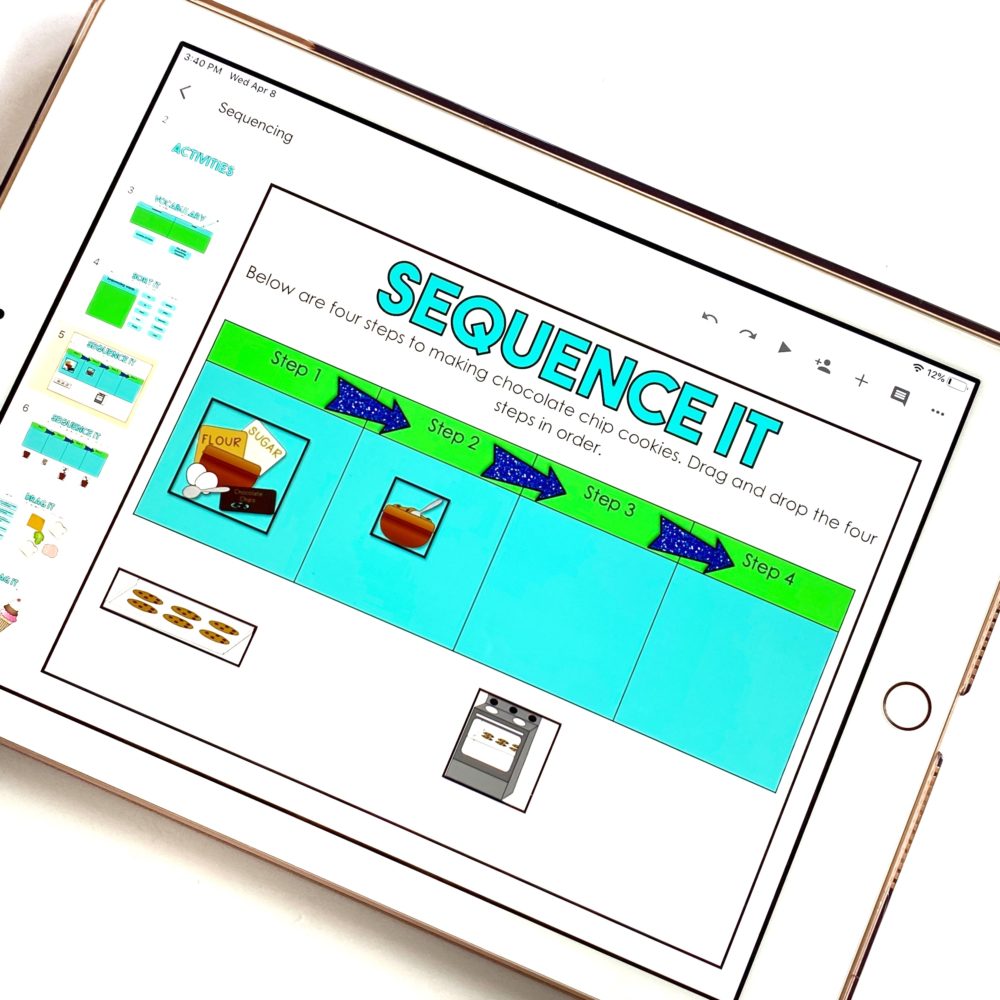
One of the most important parts when you begin teaching sequencing of events is to focus on keywords.
Before, after, first, second, so, next, and because are just a few examples!
This Google Classroom Sequencing resource takes your students through it all – learning keywords, sorting steps into their correct sequence of certain tasks like making cookies or a sandwich, and then working up to writing their own sequence of events and using keywords to describe the process of certain things.
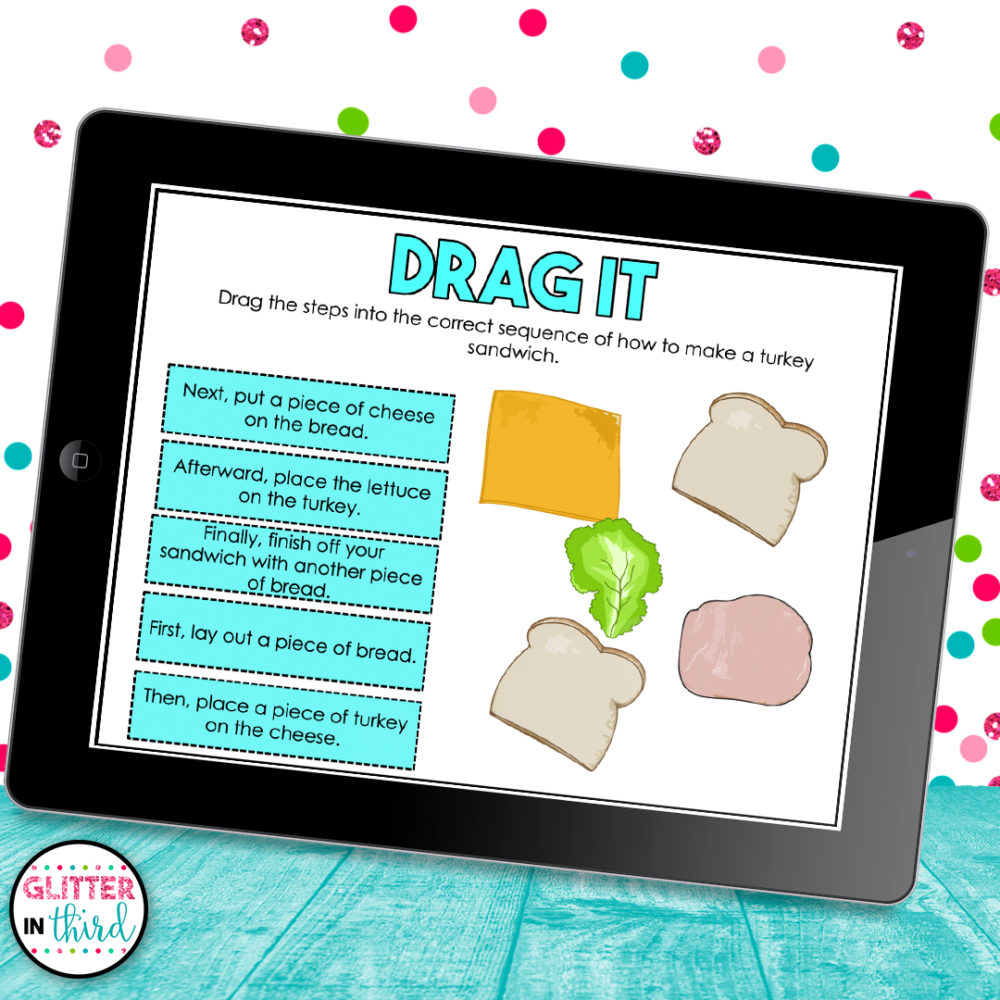
There are 3 blank and editable graphic organizers included to use for your own texts and lessons to reuse over and over.
You’ll also find an answer key included and a teaching guide for implementation.
You can read more of the specifics of each activity in this resource here!
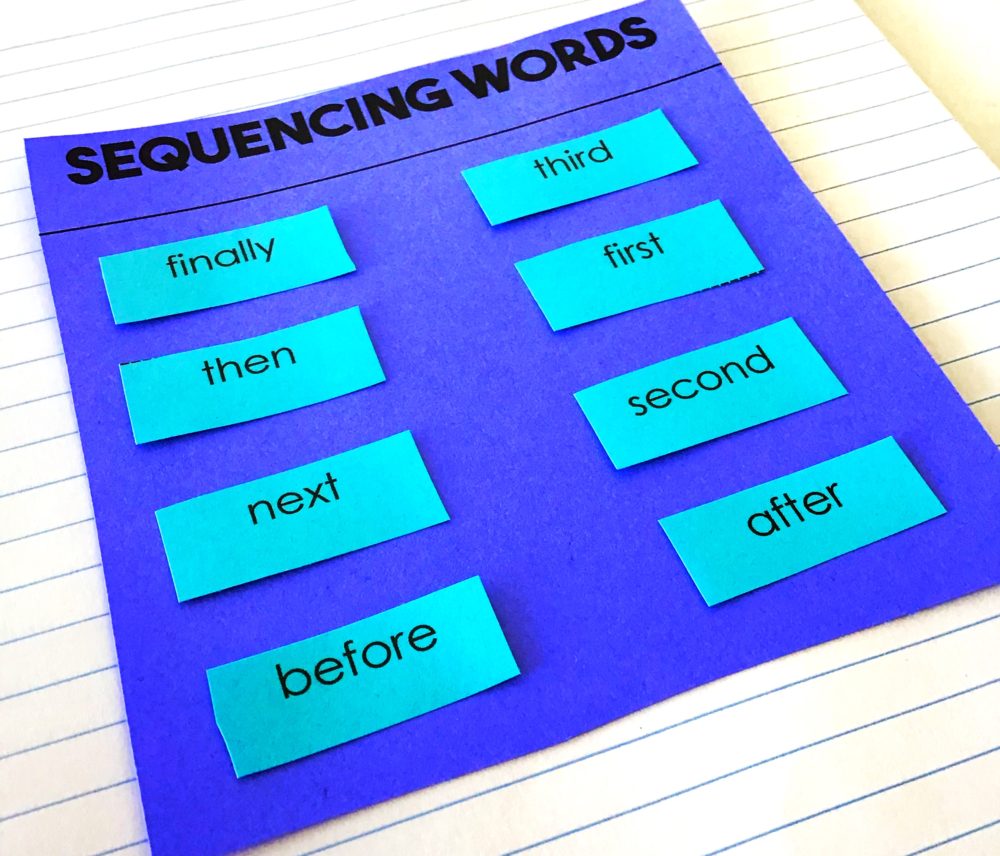
You know I love a good interactive notebook!
They’re perfect for individual or small group work.
This notebook focuses on key sequencing words, cutting and sorting pictures and written words in their specific order, as well as opportunities for your students to write their own sequencing steps for given tasks.
I’ve also included a graphic organizer for your students to work on summarizations using sequencing keywords.
This is one of my favorite ways to quickly measure comprehension, as well!
If you have certain comprehension questions you’re wanting to ask from a specific story you’ve been working with, see if you can alter the questions to also incorporate practice of sequencing. 🙂
This resource is compatible with EASEL to make it digital if you prefer a digital option. You’ll find it here!
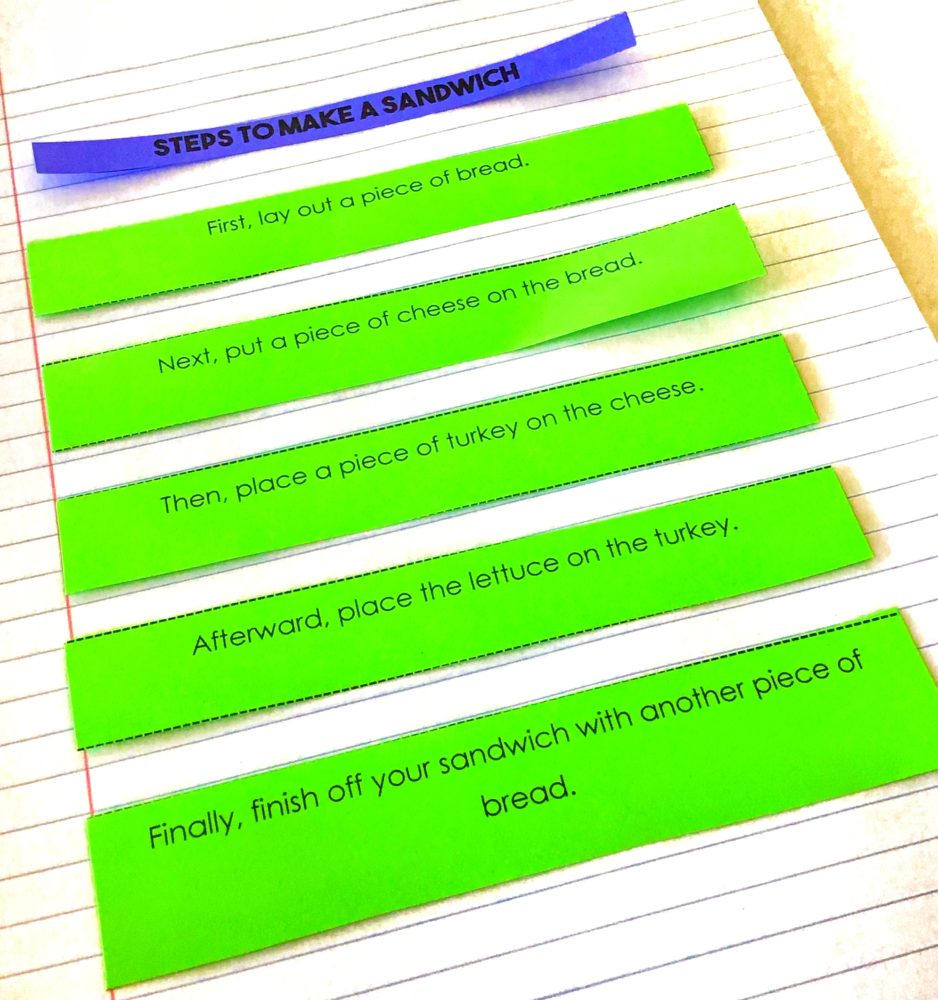
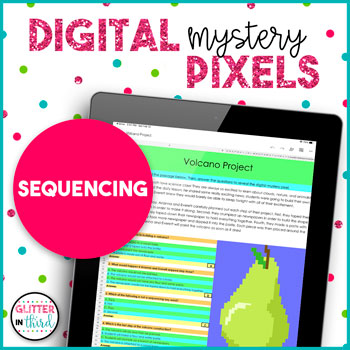
There are 5 total pixels included in this digital pixel resource that come with 4 questions each.
Your students will read the given passage, and then answer sequencing questions related to the text.
If you’re unfamiliar with digital pixels, a mystery picture appears as answers are correctly selected!
These digital pixels are so helpful to supplement your sequencing unit because of their flexibility.
They’re perfect for formative and summative assessments, group work and discussions, as well as quick homework assignments.
There’s no grading on your part – just assign and review scores! 🙂
If you’ve never seen how these digital pixels work, you can preview a video of them here!
You can fill out the info below to get a FREE digital mystery pixel sent right to your inbox!
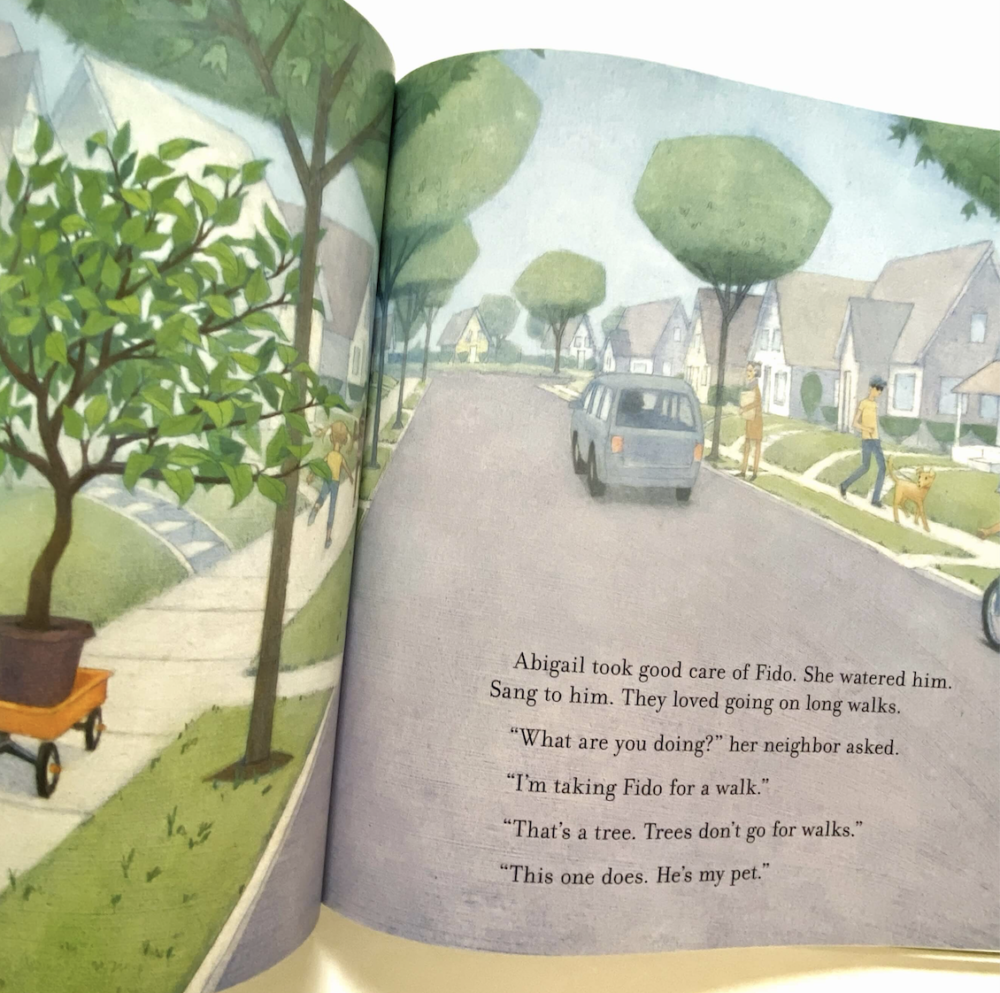
If you don’t already take “picture walks” with your students prior to reading a text with them, you should definitely consider trying it for your sequencing unit!
Encourage your students to look at a story for the very first time, simply through just the pictures.
It’s not only great for practicing sequencing and seeing the story played out through images, but it’s perfect for creative thinking, discussion, and just boosting overall conversation with your students.
Once you go back and read the story through text, your students will have a greater understanding of the events since previously interpreting the pictures!
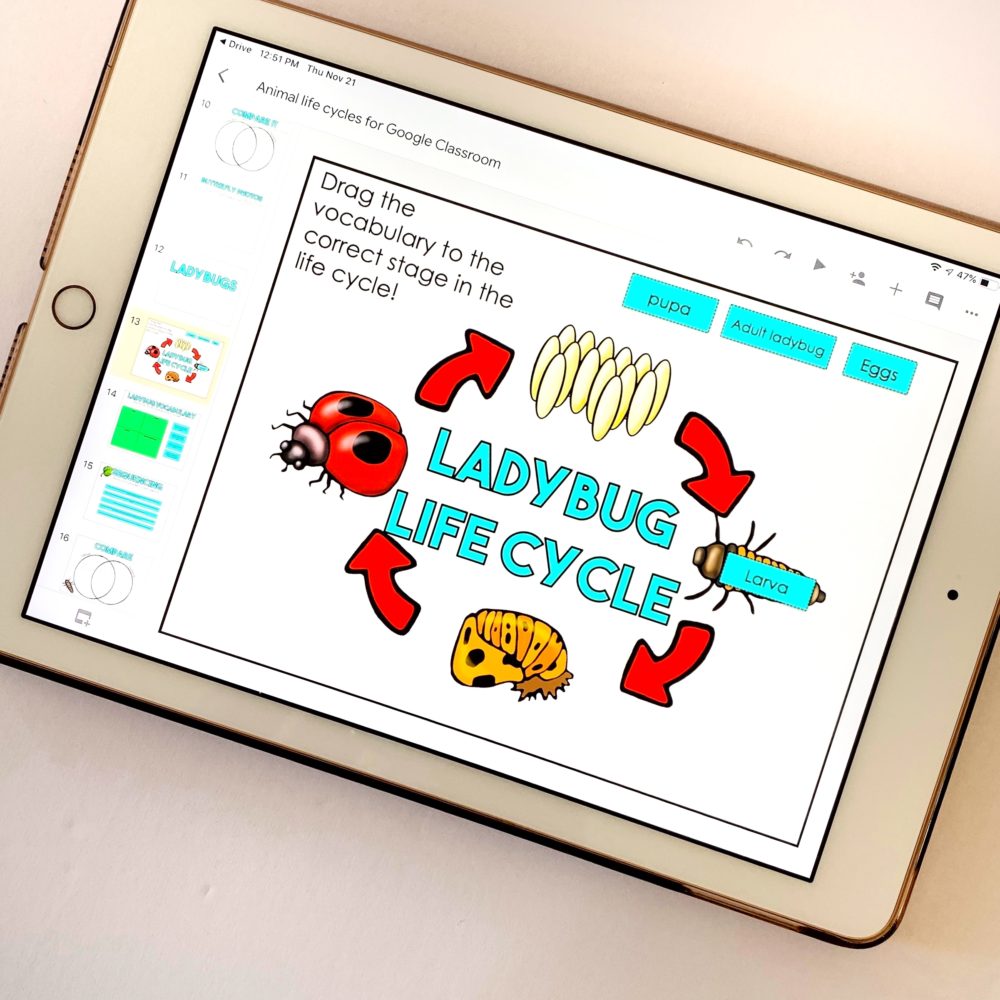
Reading isn’t the only subject for studying sequencing!
You may have a student who performs really well in math or science.
When you’re assessing their understanding of sequencing, have them write out or verbally explain a multi-step math problem to you.
Or, have them do the same thing for the life cycle of a certain plant or animal.
You have to remember that it may not be the actual skill of sequencing that some students may be struggling with, but connecting with the literature instead.
Because of this, always consider incorporating other subjects when you’re assessing specific skills!
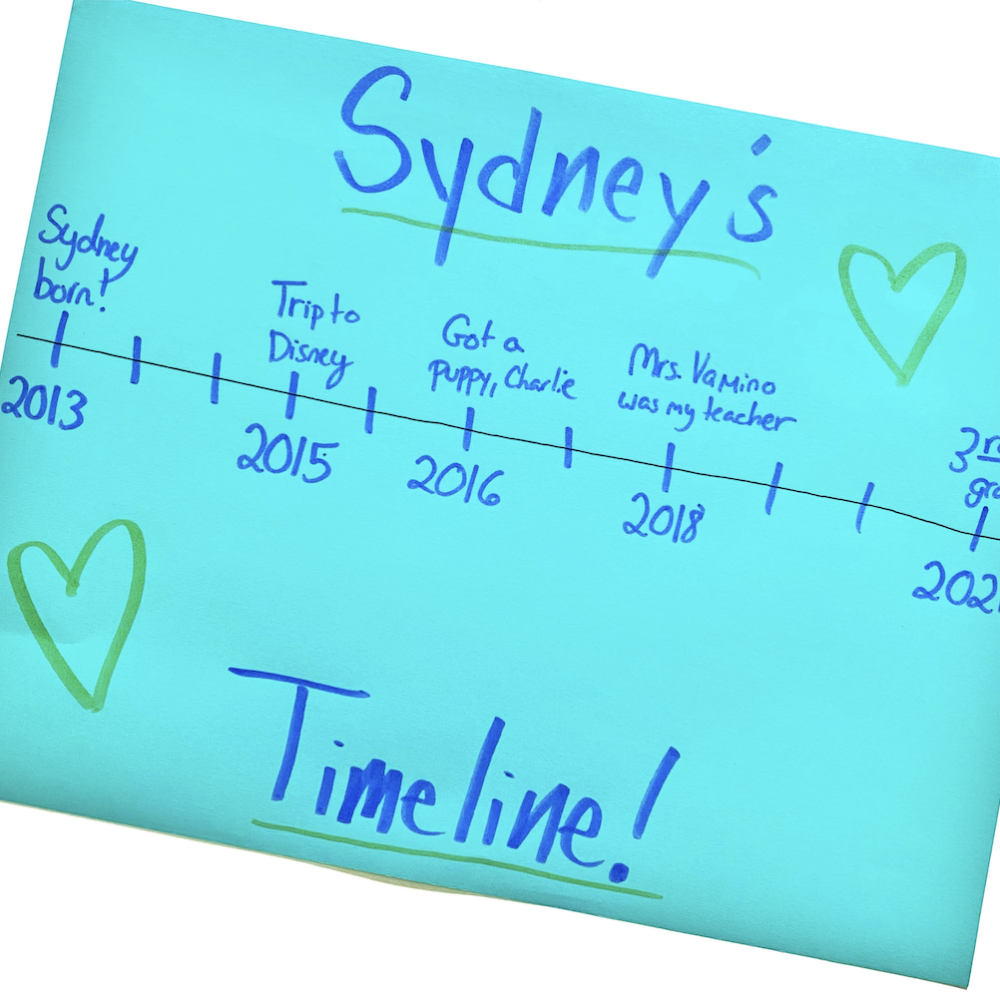
Of course, timelines are an excellent way to practice and review the sequencing of events, but I totally prefer using them to place life events in order instead of social studies topics! 🙂
When I was teaching I would assign each of my students a specific week throughout the school year to have a timeline of their life from birth to present completed.
I would typically allow 2 weeks between student presentations so the timelines would carry us throughout the majority of the year.
I would provide each student a blank timeline that was roughly 10 feet long, and about a foot wide.
This allowed them enough room to color pictures if they wanted, write text and descriptions for their major life events, or even add actual printed pictures if they wanted to.
So many families enjoyed creating them together!
It was a great way to get to know every student personally in the class and I was always so blown away by some of their experiences!
We talked about birthdays, special holidays, family moves, siblings being born, and even heard some stories about a few broken bones! 😉
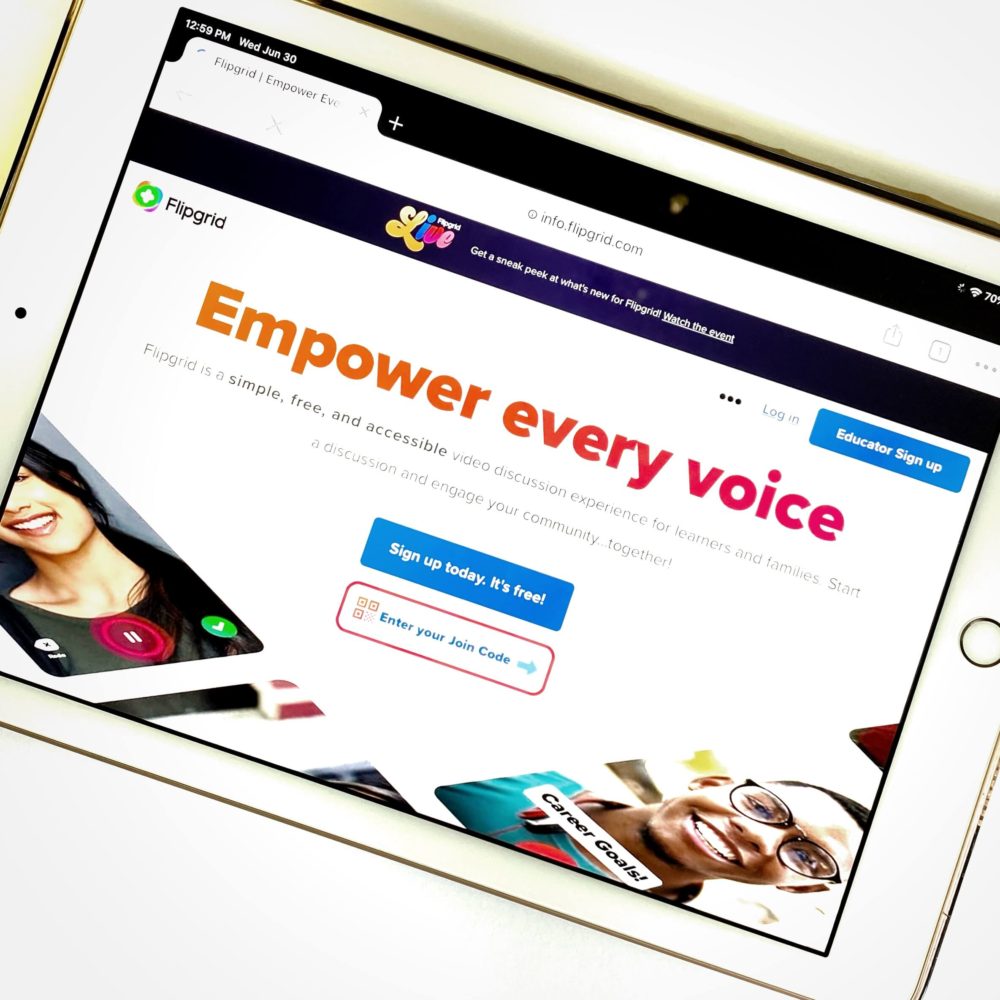
Another way you can assess students’ understanding of sequencing is through video.
As we’ve talked about, some students really excel by sorting pictures or writing about step-by-step events, but you can also have your students create a video of themselves retelling a story, sharing a recipe, or giving instructions on how to complete a certain task.
Flipgrid is a super fun video website where your students can safely share videos with you and the rest of the class!
Consider allowing each student to choose a topic they’d like to “teach.”
You could give simple suggestions such as how to tie your shoe, how to draw a star, or how to make a peanut butter and jelly sandwich.
Discuss the importance of using keywords in their video tutorials, and then have them create the video to share with the rest of the class.
They’re practicing sequencing, public speaking, and presentation skills!
Teaching sequencing of events activities doesn’t have to be isolated to just language arts.
The more you incorporate it into a variety of activities in your classroom, the better your students will be at it. 🙂
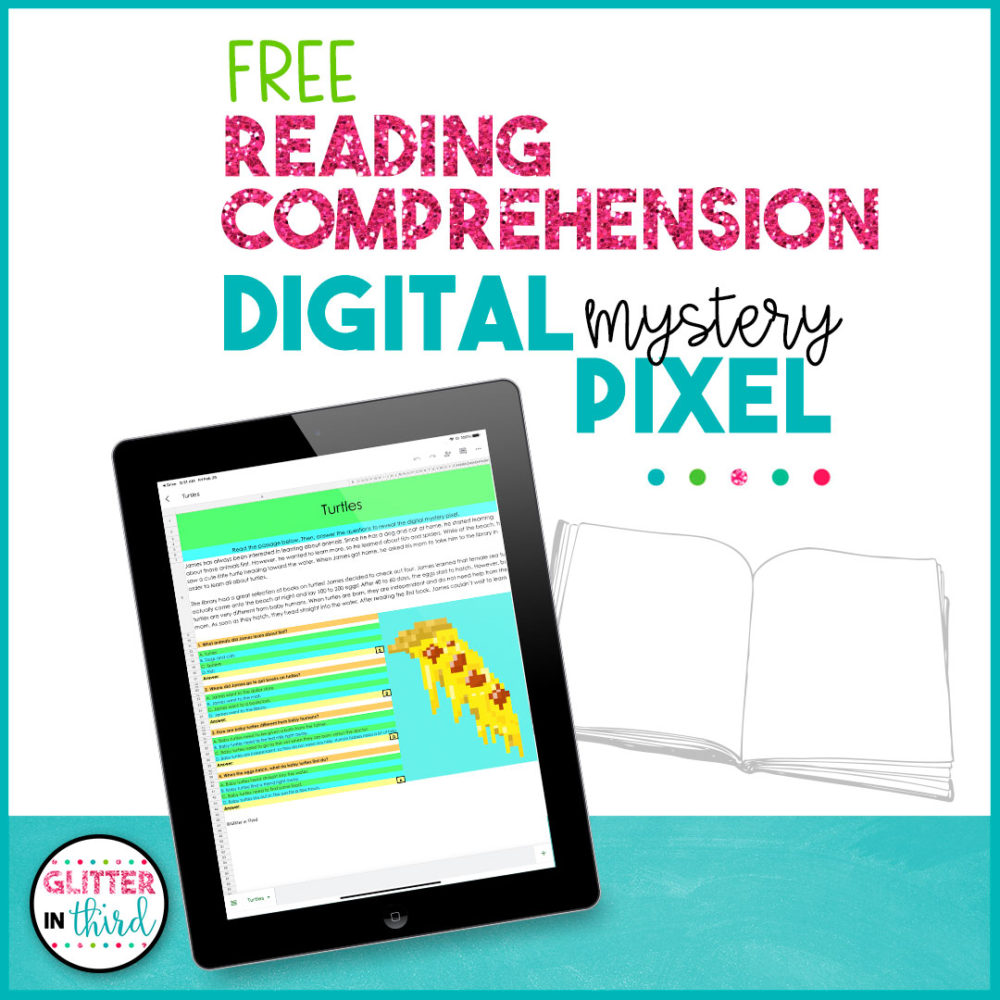
Make sure to leave your deets below to get a FREE reading comprehension digital mystery pixel sent right to your inbox!
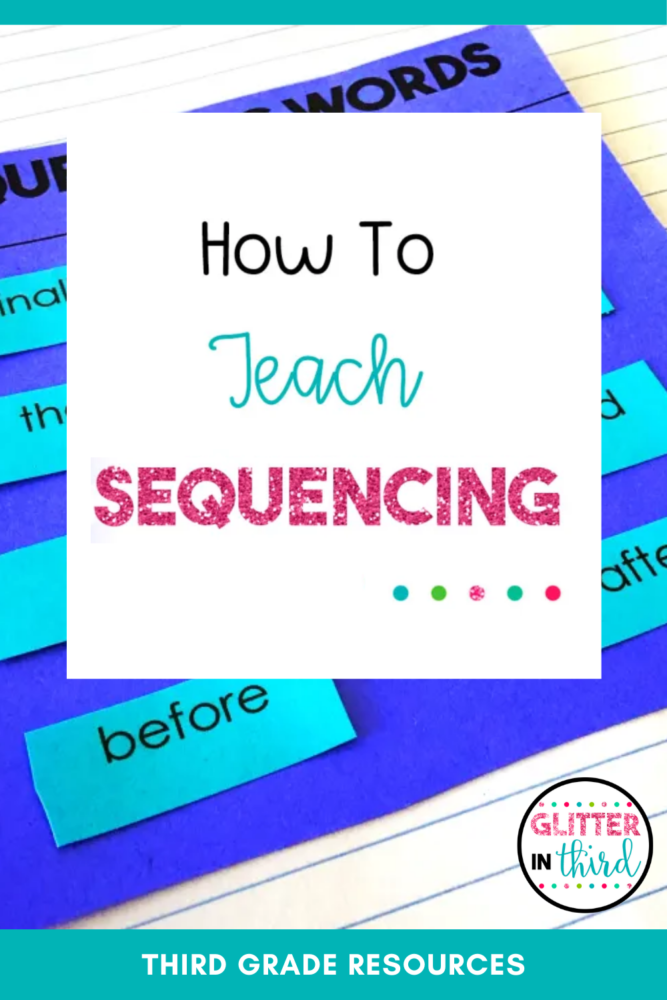

Hey there, I’m Kelly! I I love helping teachers save time with technology and resources so they have more hours in the day to spend with family and friends. Take a look around to find new ideas that you can implement in your classroom today!